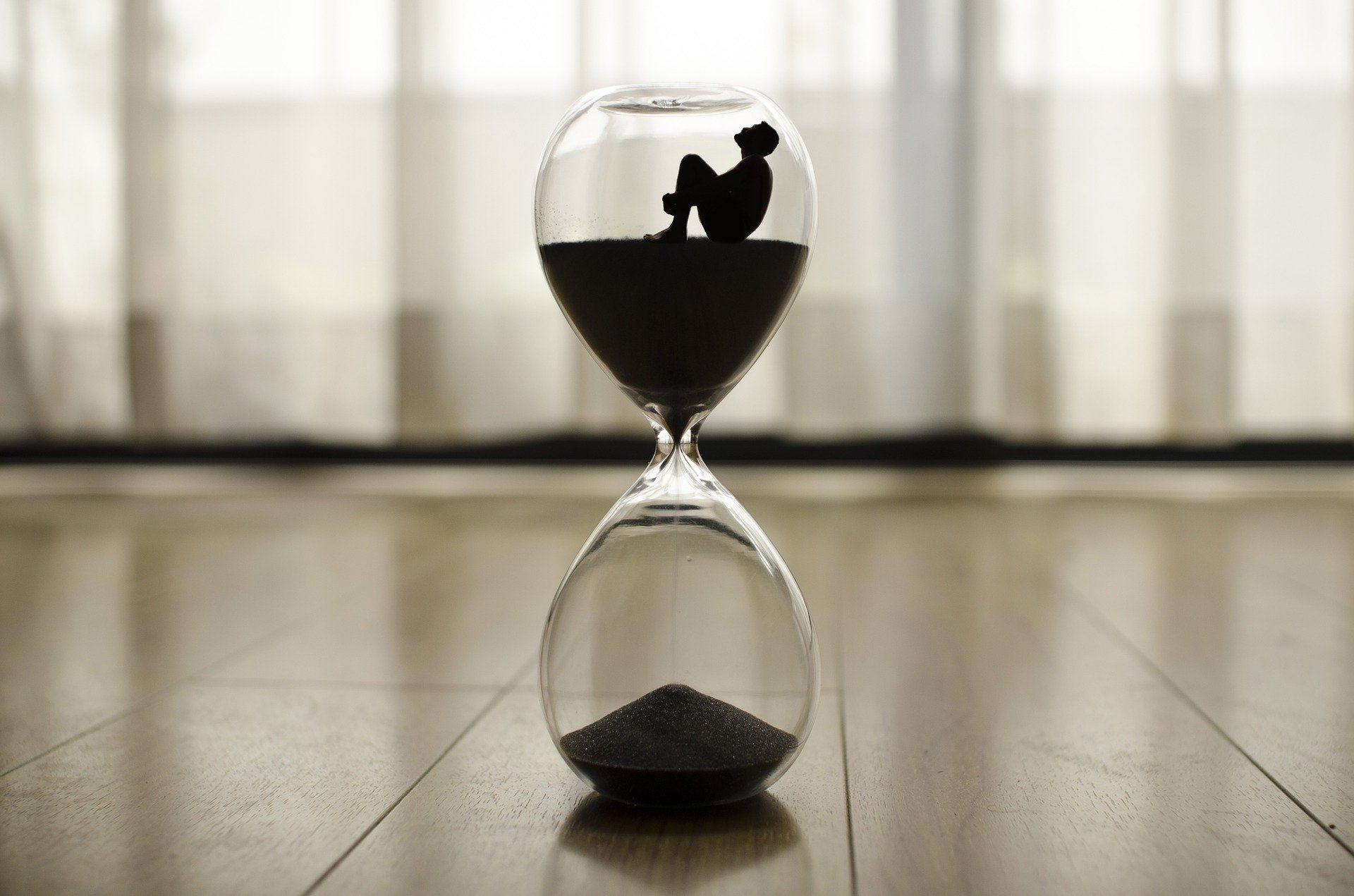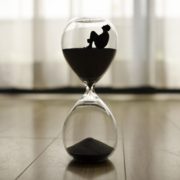COVID Message: “No More Parking Lots!”

Image by xaviandrew from Pixabay
“We have bigger houses but smaller families; more conveniences, but less time.
We have more degrees but less sense; more knowledge but less judgment; more experts, but more problems; more medicines but less healthiness.
We’ve been all the way to the moon and back, but have trouble in crossing the street to meet our new neighbor.
We built more computers to hold more copies than ever, but have less real communications.
We’ve become long on quantity, but short on quality.
These are times of fast food but slow digestion; tall men but short characters; steep profits but shallow relationships.
It’s a time when there is much in the window, but nothing in the room.”
Authorship unknown.
I borrowed that quote from a chapter heading in a new, thought-provoking book I’m plodding through entitled “Sacred Economics: Money, Gift, and Society in the Age of Transition” by Charles Eisenstein. It’s not a book – or author – that offers up much in the way of conventional thinking. I guess that’s why it appeals and keeps me plodding.
As near as I can tell from being through only a third of the book, Eisenstein is saying we are at, or rapidly approaching, the end of the money system that we’ve become enslaved to over the last several centuries.
My good friend, smart business guy, and Tuesday morning mastermind/accountability partner, Bryan Peck, turned me onto Eisenstein with an article entitled “The Coronation” a 9000-word, 35-45 minutes read that’s worth the time and effort. The article inspired Bryan to buy the book which he has finished and is encouraging me to continue my plodding.
Here’s just a snippet from the article to give you a taste of where Eisenstein comes from which I offer up realizing it may or may not inspire you to read the entire article:
“When the crisis subsides, we might have occasion to ask whether we want to return to normal, or whether there might be something we’ve seen during this break in the routines that we want to bring into the future. We might ask, after so many have lost their jobs, whether all of them are the jobs the world most needs, and whether our labor and creativity would be better applied elsewhere. We might ask, having done without it for a while, whether we really need so much air travel, Disneyworld vacations, or trade shows. What parts of the economy will we want to restore, and what parts might we choose to let go of?”
Will COVID help us come to our senses, finally?
I don’t know about you, but I’ve been conflicted for some time now having been a staunch, life-long advocate of capitalism but trying to square it lately with the glaring exploitation of the planet.
At the risk of sounding like an environmental whacko, I confess to a growing concern of how much more we can exploit in the interest of supporting a global economic system driven to achieve never-ending growth and consumerism. That’s a core question that Eisenstein tackles.
I’ll know, I suppose, when I finish the book where he comes down. It’s clear, from what I’ve read so far that he’s headed for a suggestion of something to replace the money/interest/usury system that we know and love (maybe a “not” on that love part).
One thing seems certain – and foundational in Eisenstein’s position. A global economic system based on taking the common (or divine, if you wish) “gifts” of the planet, extracting them, repackaging them, and selling them back to us on a never-ending growth platform has to have an endpoint. What happens when we have no more fish to catch, trees to cut down, oil to extract, clean water to drink, molybdenum to mine, topsoil to destroy, etc., etc., in order to sell “stuff” back to ourselves?
Are we close to that endpoint? Big questions, tough answers.
Is COVID-19 – or the one that follows it – going to accelerate our awareness of this?
For sure, 19 is laying open more awareness of the gap between the haves and have-nots. One has to wonder if we haven’t been close to a revolution tipping point even before COVID and if this might be the spark that lights the tinder.
If I were Matt Damon, I’d maybe rethink coming out of hiding to reveal being “forced” to quarantine with family in a palatial seaside estate on the coast of Ireland. Or maybe I’d think twice before insisting publicly that I’m entitled to my $7 million a year even though MLB is shut down and I can’t throw my fastball like Tampa Bay’s Blake Snell did this week. Or, certainly, Nancy’s classic ice cream collection and well-stocked royalty-class refrigerator demonstration didn’t help (other than to confirm that Washington is not a drawer full of the sharpest knives).
Take a gander at this photo:

This is hole #10 at Arrowhead Golf Course, one of the more notable golf courses in the Denver area. The view is from the patio deck of the clubhouse.
Now, envision some 50 yards or so above and to the left of this patio deck, the construction of what has to be a 10,000 SF home that has this view every day. I discovered this as I was searching for my usual wayward drive on this fairway last week and heard what sounded like a nailgun. I turned to discover this house which is not visible from the clubhouse or the drive to it.
Secluded, separate, isolated, magnificent, palatial, incredibly expensive.
A “haves” expression of “I’ve got mine.”
I’m happy for the owner – honestly. A testimonial to hard work, creativity, no doubt some good breaks in the capitalist system. I feel no resentment or jealousy Just the thought of what it takes to maintain properties of this magnitude convinced me long ago that modest digs are more sensible for us. If there is truly a hell, I’m sure it would have to be an eternity of doing home maintenance and yard work.
But the irony of the situation stayed in my head throughout the rest of the round. While this house is being built, chances are high there is a single-mom, bartender/waitress at the same club that is out of work and in constant fear. It didn’t escape me, as well, that I was playing on a $100/round course (a friend gifted me or I wouldn’t have been there) while these same people struggled.
Do we really want to get back to “normal?”
We’ve been faking sustainability and socially-conscious capitalism for some time now. It all makes for nice PR, but scrape all that off and we are still pillaging this mudball at a rate that may have caught up with us.
 Genesis 1:28, states: “And God blessed them. And God said to them, ‘Be fruitful and multiply and fill the earth and subdue it, and have dominion over the fish of the sea and over the birds of the heavens and over every living thing that moves on the earth.'”
Genesis 1:28, states: “And God blessed them. And God said to them, ‘Be fruitful and multiply and fill the earth and subdue it, and have dominion over the fish of the sea and over the birds of the heavens and over every living thing that moves on the earth.'”
Subdue means to ” to conquer and bring into subjection; to vanquish.”
I suspect, as the author of all this, God really meant “sustainably subdue” and wishes He had been a little clearer and taken it beyond just the animal realm. Obviously, lacking that and in light of our “fallen nature”, we’ve taken it beyond “every living thing” to include every non-moving thing and to “unsustainably vanquished” – or close to it.
So maybe God now says: “Here’s COVID-19. Chew on this for a while and start rethinking. Oh, BTW, I’ve got a series of these COVID-like things lined up until y’all come to your senses and start treating my creation sensibly and come back into community. Bottom line? I don’t like the long-term ROI I’m seeing with these gifts I granted you. Enough with the concrete parking lots – try a community garden and get rid of those food deserts!”
Can we afford to keep up “the normal?” Do we really want to go back?
I’m open to a cogent argument that says there is no peril to us continuing to open the “have and have not” gap.
Doesn’t your mind go a little crazy with this extra time to think about what might be next?
Couched in the context of our current political climate and an interest-based money system, it’s pretty hard to depart from a “what’s next” that isn’t further exploitation.
I’m confident (at least, this morning) that our eyes are being opened a bit to this and that some modicum of change will happen that inches us in a different direction, hopefully without a revolt.
I expect we will be hearing from more thinkers like Eisenstein – and that might be a really good thing. Maybe that thinker is you.
I’d like to know. Leave a comment.





Gary. thank you. And yes, my mind also goes crazy. I’m on the other side of the scared phase, and am bracing myself for the strange. Everything is going to be changed on some level when we arrive at our new normal. I hope our choices will be environmental and health centered, for the benefit of the earth, us, and economic strength.
I just like the helpful info you supply on your articles. I will bookmark your blog and test once more here frequently. I am moderately certain I will be told a lot of new stuff proper right here! Good luck for the next!
Hello makeagingwork.com administrator, Your posts are always on topic and relevant.
To the makeagingwork.com webmaster, Your posts are always a great source of information.
Dear makeagingwork.com admin, Your posts are always well-balanced and objective.
Hey there, I think your site might be having browser compatibility issues. When I look at your website in Opera, it looks fine but when opening in Internet Explorer, it has some overlapping. I just wanted to give you a quick heads up! Other then that, terrific blog!
Dear makeagingwork.com owner, You always provide valuable feedback and suggestions.
To the makeagingwork.com admin, Thanks for the well-written and informative post!
Hello makeagingwork.com administrator, Thanks for the well-researched and well-written post!
Hi makeagingwork.com admin, Your posts are always interesting.
Hello makeagingwork.com administrator, Excellent work!
To the makeagingwork.com administrator, Your posts are always well-supported by facts and figures.
Dear makeagingwork.com webmaster, Great post!
Dear makeagingwork.com webmaster, Your posts are always well presented.
To the makeagingwork.com admin, Thanks for sharing your thoughts!